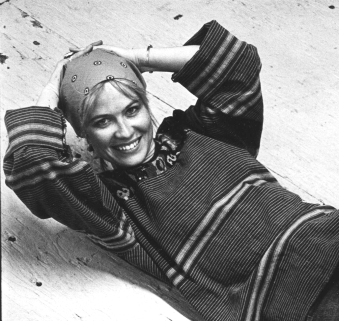My present view is that Asberger’s disorder is a distinct package of intelligence and hyposocial characteristics that are viewed by the normal majority as defective, but which are the manifestation of a brain type that may reflect ancient human norms, before the juvenalization-domestication of our ancestors a short 10,000-15,000 years ago; a time when Homo sapiens lived in nature, when visual thinking would have been advantageous and typical. Aspergers children display “symptoms” that can be compared with the behavior of wild animals that are captured and confined in zoos or other unnatural environments. This negative reaction to abnormal environments may extend to human children in general, who must adapt to obsessively social and toxic physical environments such as schools.
One of the reasons I write this blog is that any individual who is caught in the maelstrom of bad psychology, archaic psychiatry, rigid social demands, sexism or any other human-hating thought regime, will understand that there’s far more incompetence than malice behind this “disability, mental illness, developmental disorder, DSM Bible” imposition on human behavior. Never abandon your well-being to “theories” or to the social hierarchy who insist that they “own” human behavior. If you are Asperger, trust your intuition. Keep to the facts; use your beautiful brain to analyze what’s going on in around you. Find help from fact-based sources.
Education: BA Geology, University of Colorado.
_____________________________________














Your sight on Asperger is very interesting, Face.
I got my diagnosis very late with 53 and it was discovered by myself.
To your article on Interoception: have you ever read about “proprioception” and the problems that some Asperger do have called Non-verbal learning disorder ( NLD)?
People with that condition cannot feel their own body in all dimensions. They lack deep sensibility. Maybe therefore their appreciation for deep pressure massage. It’s like living only in your head controlling everything because you’re lacking a specific sensibility. Very interesting because on the other hand you can be high sensitive.
Read smiling the comment of one person you described who went to Germany and afterwards he appreciated Wyoming much more!
Greetings from an Aspie woman born
in Germany and living in Europe searching for the “wilder “spaces ( Nature without too much people= ” no-go-areas” in ancient times:-) to survive
LikeLike
Hello! Thanks for your comment. I too was diagnosed very late. Autism is such a crazy diagnosis – so many types of symptoms and each person is different. I do believe that “wild lands” are better places for our people to be comfortable and happy. People are more stable, relaxed and tolerant with so much space spread out!
LikeLike
Your blog is currently included on our Actually Autistic Blogs List (anautismobserver.wordpress.com). Please personalize your blog’s description by selecting “About the list/How do you want your blog listed?” from the top menu on that site.
Thank you.
Judy (An Autism Observer)
LikeLike
Checking up on you.
LikeLike
Oh, dear. Aspies don’t do well in hospital environments. Please share if that helps.
LikeLike
You are right. Autistic or not here are many people who should not have dogs as they cannot take care and live with them. Temple Grandin tells how she was able to take animal viewpoint when plannig more humane butcher houses.
LikeLike
I must admit, that i am not a specialist about dogs, but your article made me sum up my experince about dogs, aspergrs and autism. For me dog is autistic, when it like to stay alone rather than in the group.
There are some old traditional hunting and herding dogs in Finland. One of these is a Finnish Lapphund, which is nowerdays a popular citydog in Finland. The breed emergerd about 10000 years ago after the ice age. Typical is that a dog operate alone together with his/her master. This kind of dog behaviour is also needed today as there is more demand fo lonely puppies for citypeople. “Finnish Lapphunds have excelled in activities such as obedience trials, agility, herding trials, and pet therapy.” https://en.wikipedia.org/wiki/Finnish_Lapphund
Interbreeding has caused some healthproblems to these dogs. Eyediseases and epilepsy is common amongs them and they live about 10 years.
https://fi.wikipedia.org/wiki/Suomenlapinkoira (in finnish)
—
In city some autistic weakness may become strenght:
Repetitive actions. With this type of symptom dogs tend to have a routine that they like to stick to.
Dysfunctional interaction with other dogs…
Restricted behavior – limiting themselves to performing only a few actions and/or avoiding new actions, games etc.
….
Lack of activity. This is especially noticeable in breeds that are a high-energy dog as the lack of activity can be quite surprising.
Keen organization. While it may sound crazy, some owners have claimed that their autistic dogs organize toys according to size, shape, and/or color.
—
But there are autistic symtoms, which many people may not like, but autistic people may understand…
like aphaty
…Inability to communicate joy, fear, and other feelings … Dysfunctional interaction with … owner…???
http://animalquestions.org/mammals/dogs/can-dogs-be-autistic/
LikeLike
A few dog breeds are less domesticated than other breeds and closer to wild canids in temperament and behavior; the majority of modern humans are highly domesticated and therefore choose highly domesticated breeds. Man has created dogs in his own image. When held captive, wild animals display symptoms of human mental illness, or Zoochosis. Many dog owners also, because they see pets as human children, literally make their dogs “mentally ill.” Dog breeders create dysfunctional animals to be compatible with dysfunctional modern social humans – that’s abuse.
LikeLiked by 2 people
As you wrote aspergers of your dog – there are two types of autism or aspergers (as I think aspergers and autism are same, but here I use term autistic as it is a proper adjective to describe what I mean).
1) There is a genetic autism. Often autistic people find each others and their siblings will have stronger autistic spectrum. Often people prefer autistic dogs. So cennels select autistic puppies to breed an autistic family of dogs.
2) There is also socially learnt autism. There were autistic childeren found in orphanage after fall of Romanian communist regime. When these children were taken good care, they lost their autism. Also dogs can learn autism from their masters.
Among Indians and Finns there are common characters. Both ones have been traditional hunter-cathers. That has meant, that they need good senses specially the sight to survive. They have learn to stay log time still and wait for the prey. As you say: “Asperger individuals have a pre-agricultural, pre-social brain type. Visually dominant instead of social-verbal. A type of organization and processing necessary to living “wild’ and therefore the “original” human brain…”
LikeLiked by 2 people
So, kennels in Finland actually breed autistic dogs? OMG! After that post it did occur to me that maybe the dog picked up behavior from me; I’ve had dogs all my life, and none were very social. The female dogs were more responsive, though. My father was classic Asperger: I can see how he encouraged and supported my Asperger tendencies: the childhood environment can certainly increase / decrease the social consequences. I do know that an Asperger “way of being” is fundamental and can’t be unlearned. I think that Aspergers is quite different to Autism (language ability is a big deal!) which is a big collection of “conditions” having different causes. The only similarity is lack of social inclination. It’s a “lazy” diagnosis – at least in the U.S. where profit-making motivates the medical-mental health industry. The use of drugs on children is a HUGE industry. $$$$$
LikeLiked by 1 person
Finns are quite autistic when they are taken out of their social setting like in immigration to America. Somehow they were quite capable to integrate and survive with other autistic people the aborginals. Sill you can meet these our autistic cousins:
” In the Great Lakes region there are people with roots in Finland and among indigenous North American peoples. It’s impossible to know how exactly many of these so-called ‘Findians’ exist, but their numbers are estimated in the hundreds. Author Katja Kettu, journalist Maria Seppälä and photographer Meeri Koutaniemi documented their lives over the course of three years. Their experiences form the basis for their book, ‘Findian country’.”
http://yle.fi/uutiset/findians__the_story_of_finns_distant_cousins/9087943
LikeLike
Thanks for the link: beautiful photography. The people appear to have suffered in the same way as other tribes – neglect, isolation, lack of services. It’s an American tradition to abuse native peoples by dumping them on reservations – a slow decline in population. I grew up outside Chicago – many Swedes, Germans, Poles and Czechs, but few Finns as I recall. Perhaps they did prefer the forest wilderness over traditional farming and industrial jobs. I had never heard of Findians. They seem to be concentrated in Minnesota. I found a article from an online magazine “FINNTIMES” (based in California) about a group of Finnish Americans who went to “Findia” to see what was left of Finnish history there. I will post both links.
Do you think that Finns as a people are literally Autistic? My hypothesis is that Asperger individuals have a pre-agricultural, pre-social brain type. Visually dominant instead of social-verbal. A type of organization and processing necessary to living “wild’ and therefore the “original” human brain. I don’t talk about Autism in general because I know too little about it to make any claims. I’m surprised that no one is doing genetic studies for introgression of archaic genes in ASD individuals. They’re so convinced that we are “defective” and can’t see beyond that.
LikeLike
Good question – failed to make a subsistence level of $ which had been a goal, yes.
Beating doesn’t necessarily require a physical strike. For those with hfa & language difficulties, finding the meaning and intent and the right path through the spoken word can be maze-like, especially when out of one’s comfort zone.
LikeLike
I’ve always been good with language, but guess what? It doesn’t help with understanding the “meaning and intent” of social people. I don’t think typical people have a clue what it’s like to feel like a stranger – almost a different species, every moment of every day.
LikeLiked by 1 person
Also diagnosed late in life with HFA, I have been a failed artist my whole life and yet, somehow, always found a thread of light inside. Many boxes and labels may be used on me. I escaped them and yet I am vulnerable even though experience taught some recognition of edges, posted warnings, built partial fences along the way.
LikeLike
Interesting – you say you are a failed artist. Did you have goals you didn’t meet or was failure someone else’s opinion? Yes, we need to protect ourselves; it took me awhile to understand that it was a choice that had to be made. I just couldn’t keep on taking a beating…
LikeLike
Dr. Debra Moore- Absolutely most total idiot. She really does bring out the perspective of the ‘idio’ in ‘idiot’
LikeLike
I try to entertain my readers with the work of idiots. LOL
LikeLike
For a start it shouldn’t be called a ‘disorder’. My parents ran a childrens’ home for, what in the early 60s, was called ‘maladjusted children’! Even then when I was about 12 I sensed there was something wrong with labeling some people (children) in such a way!
LikeLike
Interesting; maladjusted to a sick society would be correct! But society is perfect, isn’t it?? Yes – personalities are being segregated into “socially approved / socially deviant” categories and the claim made that ‘the cause” of deviant behavior is “defective” brain, as if ASD is a “medical” condition. Check out yesterday’s post on Fragile X …
LikeLike
I think you might find this interesting: http://www.bbc.com/future/story/20160105-the-man-who-studies-the-spread-of-ignorance?ocid=ww.social.link.facebook
LikeLike
Agnotology: not exactly a catchy or memorable word! By default I would say that agnotology is mainly the study of the history of psychology. What better example of the malicious spread of ignorance?
LikeLiked by 1 person
You’ll love this support for some of your ideas … http://www.seattletimes.com/education-lab/between-the-ears-is-teaching-part-of-human-nature-or-is-it-just-plain-weird/
LikeLike
Thank-you! I will post the link. It is amazing how many modern people seem oblivious to the fact that for 1.8 million years humans survived on their own. I think it must be the “special creation thing”. There were no humans before 3000 BC.
LikeLike
I just found this in the automatic spam section. No idea why. Everything is unknown to neurotypicals! LOL I get the feeling you can easily talk yourself into the argument that “no one can actually know anything.” Too many limiting factors; too many opinions; too many subjective definitions. That’s unfortunate. The quest for knowledge is easily overwhelmed with the fear of making mistakes, getting lost, getting fed up, frustrated and entangled in other people’s illusions about being human. Fortunately, knowledge isn’t about human “truth” and you can make your own way through life if you choose. Of course, you can’t live unless you trust life – the thing we experience, not the words attached.
I’m in Super Bowl mode – A fanatical Denver Bronco devotee. I’m off to see the Wizard!
LikeLike